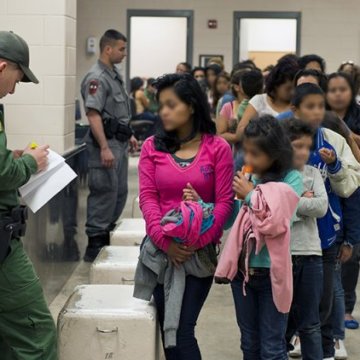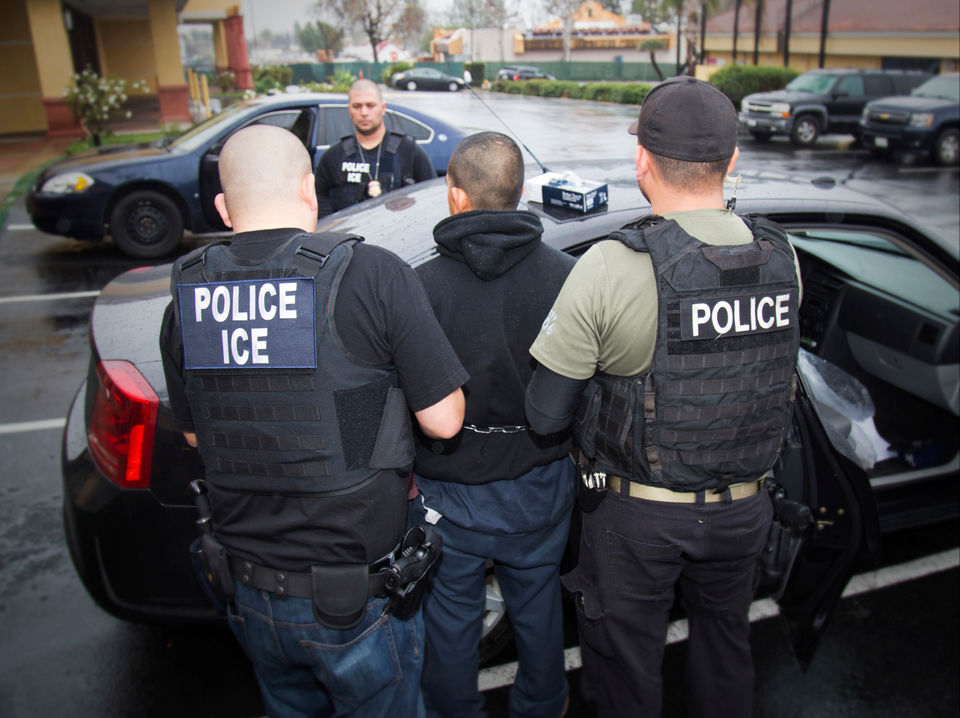- About
- Topics
- Picks
- Audio
- Story
- In-Depth
- Opinion
- News
- Donate
- Signup for our newsletterOur Editors' Best Picks.Send
Read, Debate: Engage.
| topic: | Immigration |
|---|---|
| located: | USA, El Salvador, Guatemala |
| editor: | Yair Oded |
Two weeks ago, the Trump administration signed an agreement with the Salvadoran government stipulating that asylum seekers who crossed the border into the United States will be sent to El Salvador – a country from which people are escaping en masse due to gang-violence and soaring murder rates.
While U.S. government officials contend that the agreement will uphold protections for eligible asylum seekers and will only apply to migrants who crossed through El Salvador en route to the U.S., the document’s obscure language makes it reasonable to worry that migrants will be deported to El Salvador indiscriminately, regardless of their country of origin and whether or not they passed through El Salvador on their journey.
The agreement between the two governments was signed shortly after the Supreme Court ruled that Trump may uphold his most recent asylum ban while it is being fought over in the courts. The ban stipulates that migrants who crossed through a safe third country on the way to the U.S. would have to file for asylum and be rejected in that country before being allowed to lodge asylum requests in the United States.
The recent El Salvador agreement bears great resemblance to the safe third country agreement the U.S. signed with Guatemala in July, which requires migrants from El Salvador and Honduras to apply for asylum in Guatemala and be rejected before they can seek asylum in the U.S.
Neither Guatemala nor El Salvador, however, can be deemed safe countries by any stretch of the imagination. In an interview for The Intercept, Karen Musalo, law professor at U.C. Hastings Center for Gender and Refugee Studies, stated that, “The idea that El Salvador is a safe country for asylum-seekers when it is one of the major countries sending asylum-seekers to the U.S., a country with one of the highest homicide and femicide rates in the world, a place in which gangs have control over large swathes of the country, and the violence is causing people to flee in record numbers … is another absurdity that is beyond the pale.” Adding, "If [El Salvador] can’t protect their own citizens, it’s absolutely absurd to think that they can protect people that are not their citizens”.
Furthermore, according to the Salvadoran newspaper El Faro, El Salvador currently has only one officer examining asylum requests.
Immigration experts contend that the U.S. government is well aware of these facts, yet decided to proceed with the agreement and artificially regard El Salvador as an adequate destination for asylum seekers.
According to Aaron Reichlin-Melnick, policy analyst at American Immigration Council who spoke to The Intercept about the issue, the El Salvador and Guatemala deals go a step further from the original asylum ban, as they deprive migrants of two other protections in addition to the right to seek asylum: withholding of removal, which protects them from deportation, and the Convention Against Torture, which prevents people from being sent back to countries and territories where they could potentially face torture.
If they go into effect, these agreements would place the lives of hundreds of thousands of migrants at risk, all the while violating the most basic principles of the 1951 Refugee Convention. This hardly comes as a surprise, however, given such deals were crafted by a president who evidently pressured Border Patrol agents to shoot migrants in the legs and proposed digging a water-filled trench with snakes or alligators along the southern border in order to stem the flow of asylum seekers entering the U.S..

